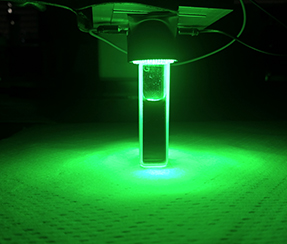In the last years there has been an increasing interest in producing smart nanosystems that respond to external stimuli, aiming at mimicking the behavior of living organisms. In order to reach this level of autonomy and adaptive behavior, complex materials with highly controlled and localized functionality are required integrating sensing and signal integration ideally to various triggers. The creation of these adaptable materials has great potential in a variety of fields such as drug delivery, remote actuation, sensing, energy generation even going towards logic operations. The basic concept of stimuli responsive materials involves controlling and exploiting relatively significant and abrupt physical or chemical changes as responses to external stimuli, such as temperature, pH, redox potential, light, ionic strength, and magnetic fields. In particular, organic–inorganic hybrid nanomaterials constitute crucial functional nanosystems for advanced applications as intelligent materials. They can be tailor made with a wide variety of architectures and in diverse physical forms depending on the requirements of their final application, regulating the starting supplies and the strategies of synthesis and functionalization conveniently. The general objective of this group is design and synthesis of a platform of new intelligent hybrid nanosystems, programmable and autonomous, through the development of reproducible and potentially scalable orthogonal synthetic and functionalization strategies.

Group leader
Cintia Belén Contreras
PHD students
Nicole Seinhart
Paola Rojo
María de los Ángeles Cabrera Molina
Undergraduate students
Juana Goldschmidt
Lourdes Franco
Guido Scarpati

Cintia Belén Contreras
Group Leader
CONICET Assistant Researcher.
PhD in Chemistry from the National University of Córdoba. She was a postdoctoral fellow at INS-UNSAM. She works in UNSAM as teacher assistant.
Mail: ccontreras@unsam.edu.ar